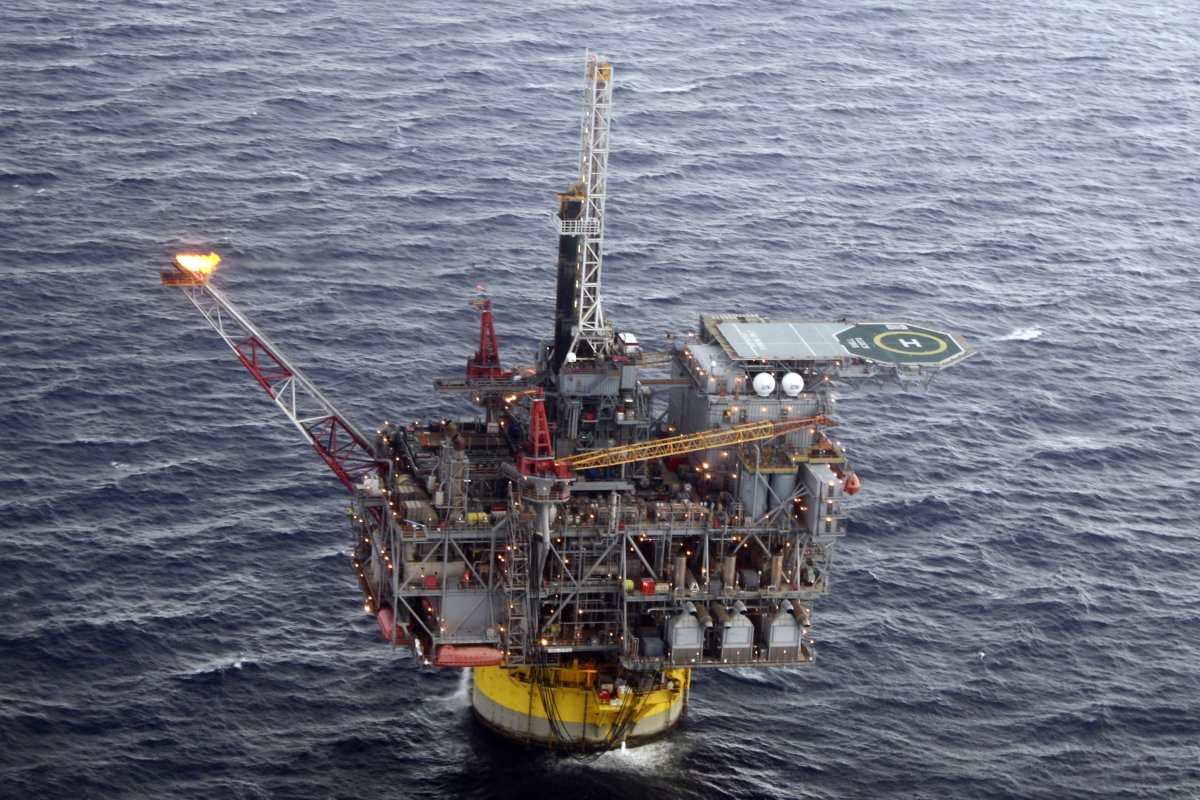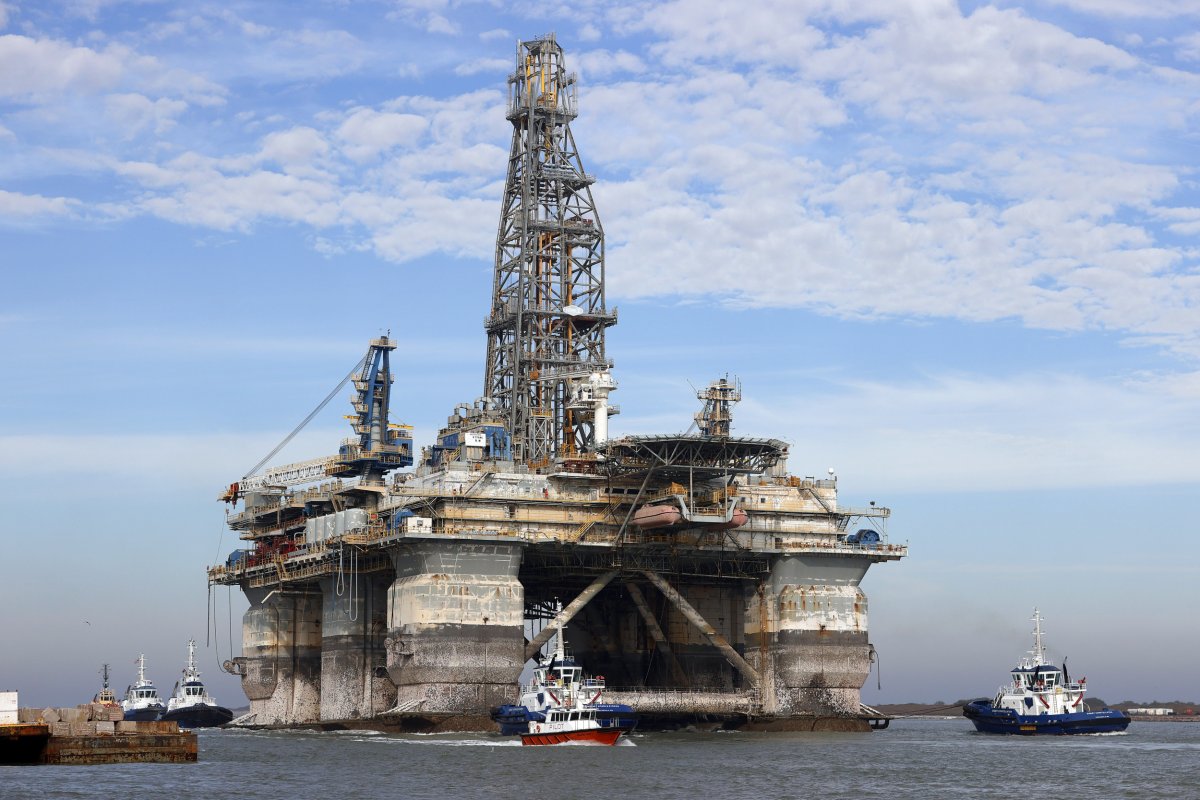In the largest total acreage auction since bidding resumed in 2017, energy companies bid a total of $192 million for the rights to drill for oil and natural gas in about 2,700 square miles of the Gulf of Mexico.
According to The Associated Press, the federal government opened bidding Wednesday on 308 tracts in the Gulf in an auction hosted by the Interior Department's Bureau of Ocean Energy Management.
Companies like Shell, BP, Chevron and ExxonMobil participated in the first auction of President Joe Biden's term. The sale comes after several Republican attorneys general successfully sued the federal government to remove a suspension on federal gas and oil sales enacted by Biden when he took office.
Experts say the auction illustrates the challenge of Biden's administration, as he advocates for reducing greenhouse gas emissions and convincing other countries to do the same, while the U.S. is still dependent on the existing system.
"The thing that is really bedeviling people right now is this conflict between the short term and long term when it comes to energy policy," Jim Krane, an energy studies fellow at Rice University in Houston, told the AP. "We still need this energy system that is basically causing climate change, even as we're fighting climate change."
According to the U.S. Geological Survey, the extraction and burning of fossil fuels like crude oil and natural gas from public lands and water make up about 25 percent of the carbon dioxide emissions nationwide.
The Biden administration also proposed another lease sale in 2022 for drilling rights in states like Wyoming, Montana and Colorado, although Interior Department spokesperson Melissa Schwartz is conducting more comprehensive emissions reviews and appealing the court order that forced the government to resume sales.
For more reporting from The Associated Press, see below.

Driving the heightened interest are a rebound in oil prices and uncertainty about the future of the government leasing program after Biden campaigned on pledges to end drilling on federally owned lands and waters, which includes the Gulf, industry analysts said.
"Prices are higher now than they've been since 2018," said Rene Santos with S&P Global Platts. "The other thing is this fear that the Biden administration is here for another three years. They're certainly not going to accelerate the number of lease sales and they could potentially have fewer sales."
It will take years to develop the leases before companies start pumping crude. That means they could keep producing long past 2030, when scientists say the world needs to be well on the way to cutting greenhouse gas emissions to avoid catastrophic climate change.
Yet even as Biden has tried to cajole other world leaders into strengthening international efforts against global warming, including at this month's climate talks in Scotland, he's had difficulty gaining ground on climate issues at home.
Interior Department officials proceeded despite concluding that burning the fuels could lead to billions of dollars in potential future climate damages.
Wednesday's livestreamed auction invited energy companies to bid on drilling leases across 136,000 square miles (352,000 square kilometers) — about twice the area of Florida. Federal officials estimated prior to the sale that it could lead to the production of up to 1.1 billion barrels of oil and 4.4 trillion cubic feet of natural gas.
Shell, the largest leaseholder in the Gulf, said the leases that the company successfully bid on could offer development opportunities near existing platforms or new areas.
"Regardless of today's outcome, the need absolutely continues for continued competitive leases in the U.S. Gulf of Mexico," said Shell spokesperson Cindy Babski.
Environmental reviews of the sale — conducted under former President Donald Trump and affirmed under Biden — reached an unlikely conclusion: Extracting and burning the fuel would result in fewer greenhouse gases than leaving it.
Similar claims in two other cases, in Alaska, were rejected by federal courts after challenges from environmentalists. Climate scientist Peter Erickson's work was cited by judges in one of the cases, and he said the Interior Department's analysis had a glaring omission: It excluded greenhouse gas increases in foreign countries that result from having more Gulf oil enter the market.
"The math is extremely simple on this kind of stuff," said Erickson, a senior scientist with the Stockholm Environment Institute, a nonprofit research group. "If new leases expand the global oil supply, that has a proportional effect on emissions from burning oil. Therefore, giving out these leases in the Gulf of Mexico would be increasing global emissions."
The Bureau of Ocean Energy Management recently changed its emissions modeling methods, citing Erickson's work. Officials said it was too late to use that approach for Wednesday's auction.
Erik Milito, president of the National Ocean Industries Association, said he was uncertain that using the new approach would have changed the government's conclusions, since drilling for oil in other parts of the world is less efficient and hauling imports also adds to carbon costs.
The continued use of the old analysis rankles drilling opponents, who say Biden isn't following through on his climate pledges.
"We're talking about transitioning away from a fossil fuel economy and they are selling a giant carbon bomb of a lease sale," said attorney Drew Caputo with Earthjustice, which has a pending federal lawsuit against the Gulf sale.
Some Democrats also objected to the sale. House Natural Resources Committee Chairman Raúl Grijalva of Arizona said Biden "needs to do better" after promising to lead on climate issues but continuing a fossil fuel program with a long history of mismanagement.
The Gulf of Mexico accounts for about 15% of total U.S. crude production and 5% of its natural gas.

Uncommon Knowledge
Newsweek is committed to challenging conventional wisdom and finding connections in the search for common ground.
Newsweek is committed to challenging conventional wisdom and finding connections in the search for common ground.
About the writer
A 2020 graduate of Kent State University with a Bachelor's degree in Journalism, Aaron has worked as an assigning editor ... Read more
To read how Newsweek uses AI as a newsroom tool, Click here.








